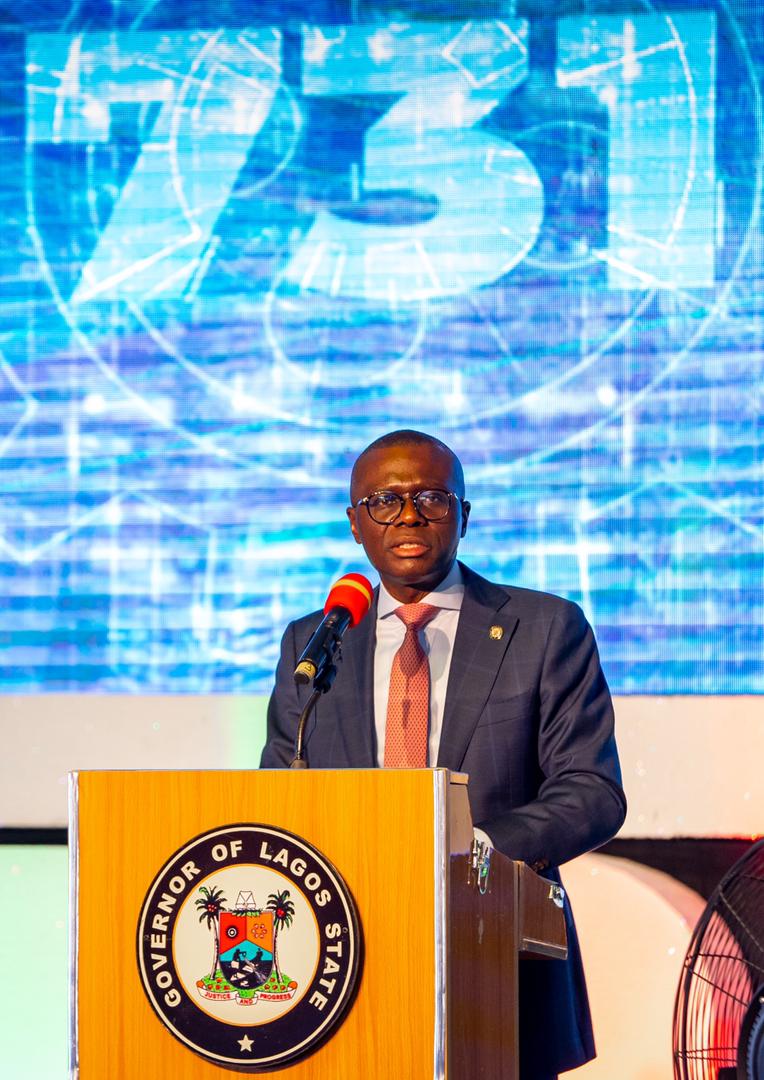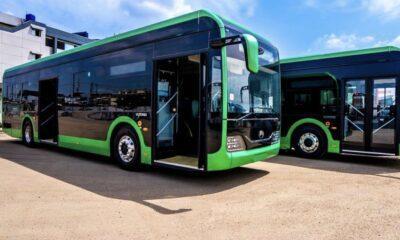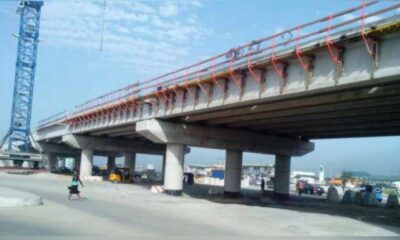Lagos State Governor, Mr. Babajide Sanwo-Olu yesterday rendered an account of stewardship of his administration in the last two years, saying that his administration has delivered on the THEMES developmental agenda as promised the electorate.
He said the totality of his administration’s efforts was geared towards ensuring a safe and secure society, where youth employment is guaranteed.
Speaking at the “2021 State of the State Address” held at the Lagos House, Ikeja, which was attended by his deputy, Dr. Obafemi Hamzat, members of his cabinet, traditional rulers, political gladiators, captains of industries and media executives, Sanwo-Olu said the Greater Lagos collectively envisioned by Lagosians is closer now than ever before.
“We are exceedingly happy with the progress we have made in the last two years. Our accomplishments have placed us at a vantage position from where we can now catch a glimpse of the Greater Lagos we envisioned together.
“As a government, we have consistently matched our word with action and worked tirelessly to transform into reality our shared aspiration of making Lagos one of the most functional and habitable cities in the world. We can do it; we will do it. We have laid a very solid foundation for the transformation of our State through strategic interventions and meaningful executions beyond this period,” he said.
The Governor said his administration is working tirelessly to deliver the Fourth Mainland Bridge, Imota Rice mill, Integrated Mass Transit System, which includes the blue and red line rail projects, water transportation, Bus Reform Initiative (BRI) as well as other infrastructure to Lagosians within next two years.
He said completing the projects within the next 24 months will bring absolute transformation to the livelihoods and the economy of our dear State, noting that his administration spent the last 729 days laying the foundation for all these to happen seamlessly.
Speaking on his Government’s plan for Lagos State, Governor Sanwo-Olu said Lagosians should expect to see the first passenger movement on the rail transportation before the end of his administration, adding that the incumbent government will build and complete intermodal bus terminals at Ajah, Abule Egba, Iju, Ojota and Anthony Village before the end of his tenure.
He said: “As a government, we have undertaken several innovative means of ensuring that citizens’ travel experiences are palatable. We, therefore, believe that the construction of the 37km 4th Mainland Bridge will significantly change the face of transportation and movement in Lagos State.
“The ground-breaking for the construction and building of the Bridge will happen before the end of this year. Our PPP concessionaires appear committed as they enter the final stage of the qualification process.
“From this day on, we are certainly heading in the direction that our city will become so connected by an Integrated Mass Transit System that a trip to the farthest part of the state will be reduced by half of the current travel time. We are focused on activating an intermodal transport system that gives Lagosians the options of commuting by Water, Road and Rail.”
Governor Sanwo-Olu also assured Lagosians that the Imota Rice mill is scheduled for completion this year. “Upon completion, the production capacity of the Mill will be among the largest in the world and largest in Sub-Saharan Africa, producing 2.5million bags of 50kg rice annually. At full capacity, the Rice Mills will provide a steady supply of 2.4million bags of 50kg rice to Lagosians and create more than 250,000 jobs,” he said
The Governor also noted that: “The totality of our efforts is geared towards ensuring a safe and secure society, where youth employment is guaranteed. With more than two-thirds of Lagos State’s population falling below age 30, it is indisputable that the future of our State is the empowerment of our youth and the security of their future. Our administration is committed to working with the youth and providing a safe environment for all to thrive.
“On Security, we are currently working with the various state security operatives to determine additional operational and infrastructure needs that the state can support. In this regard, I shall, in the coming week, be handing over operational vehicles, communication gadgets, ballistic vests and helmets, anti-riot water cannon vehicles and Armoured Personnel Carriers (APCs) to our various security operatives to further enhance and improve their operations which will ultimately have a positive impact on the security status in the state.
“We will also be recruiting additional men in the coming weeks, into our Neighbourhood Security Watch to complement the efforts of our existing security personnel.”


 Forex2 weeks ago
Forex2 weeks ago


 Naira1 week ago
Naira1 week ago
 Naira4 weeks ago
Naira4 weeks ago
 Company News4 weeks ago
Company News4 weeks ago




 Naira2 weeks ago
Naira2 weeks ago
 Billionaire Watch1 week ago
Billionaire Watch1 week ago




 Naira3 weeks ago
Naira3 weeks ago




 Naira1 week ago
Naira1 week ago















